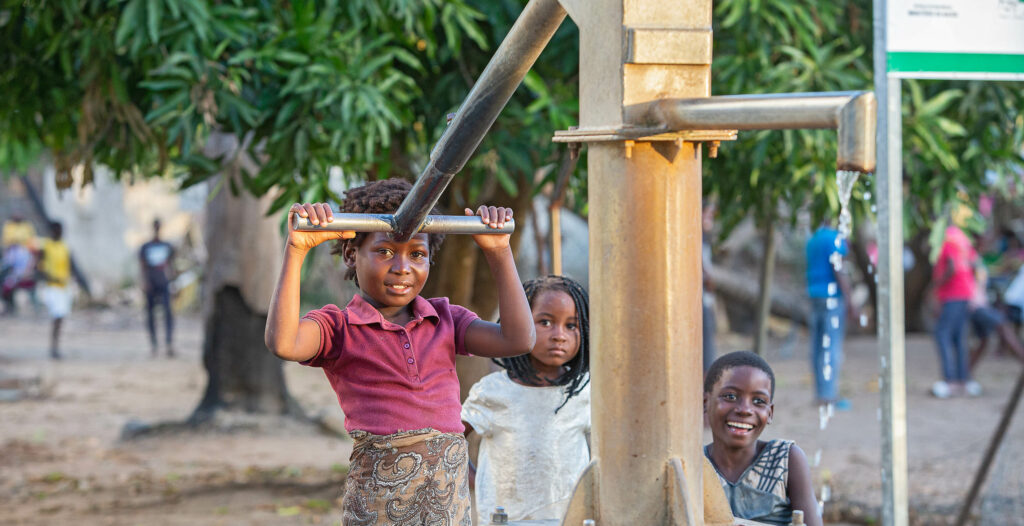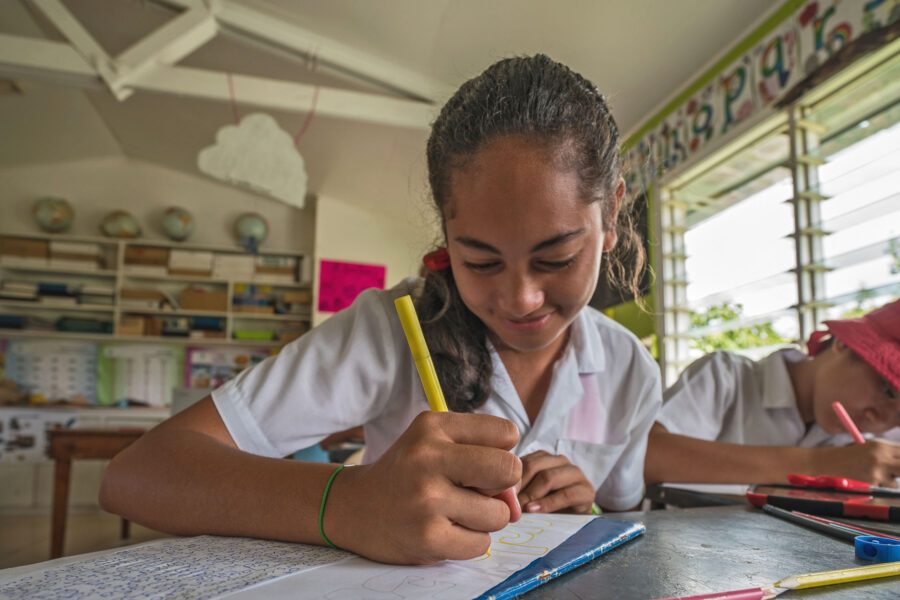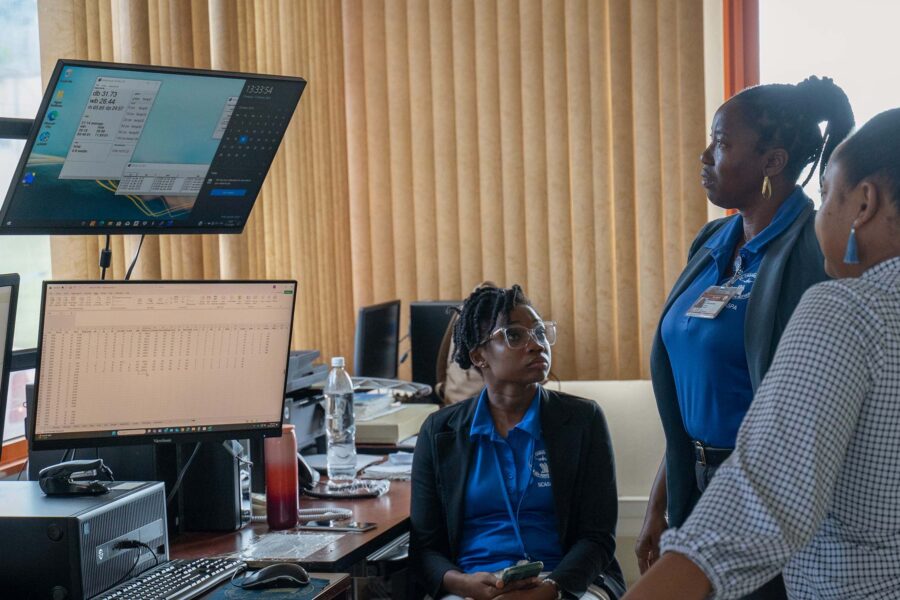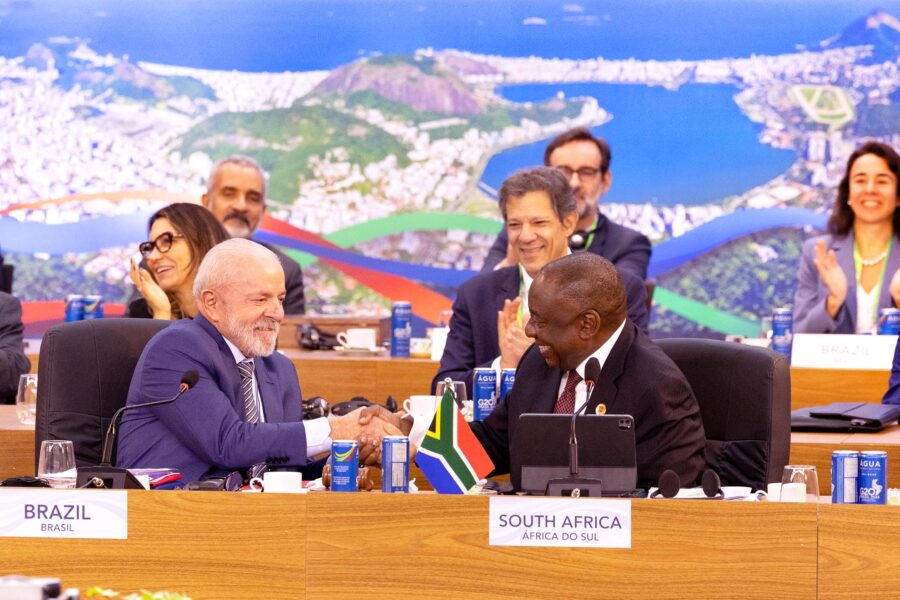Improving health outcomes through access to water
At current progress rates, 1.6 billion people will lack safely managed drinking water by 2030. Ramping up financial and political investment in access to water, sanitation, and hygiene, particularly in the world’s poorest countries and in the face of climate change, is now essential for achieving the SDGs
Health — Global

The last decade has seen considerable improvements in the service levels of safe drinking water, sanitation, and hygiene (WASH) across the globe. However, progress is uneven, and insufficient to meet the 2030 Sustainable Development Goal (SDG) targets on water and sanitation. Currently, half the world’s population still doesn’t have access to WASH. To make safely managed services universal, rates would need to quadruple globally, and in the least developed countries up to tenfold. The human cost of this access gap is shocking: the latest WHO data tells us that 1.4 million lives could have been saved in 2019 alone if everyone had access to water and sanitation, both of which are human rights.
Investing in WASH services can lead to significant reductions in diarrhea cases and save countless lives. Taking the example of drinking water, simple household-level interventions like filtration or chlorination can quickly improve water quality and decrease diarrhea. More significant and sustainable risk reductions, however, require longer-term systems change that promote professionally managed water supply. The WASH-attributable burden of disease is disproportionally felt among the most vulnerable populations who, in addition to diarrhea, face myriad diseases including parasitic infections and undernutrition.
Underscoring growing awareness on the global water crisis, the United Nations, for the first time in 50 years, convened a conference on water, which called out the need to accelerate action. The UN 2023 Water Conference called for strengthened partnerships between WASH and health at all levels – global, regional, national, and sub-national. It recognized the need for a WASH systems approach, calling for long-term political prioritization and investment in governance, service delivery, data systems, human capacity, and innovation to accelerate and sustain progress. For these systems-based approaches, government must be in the lead but partner closely with local utilities and ministries from relevant sectors such as health, energy, and infrastructure.
Progress towards SDG 6 (clean water and sanitation) is tracked by the WHO/UNICEF Joint Monitoring Programme, which measures safely managed services as the SDG indicator. For drinking water, this implies delivery without interruptions, to premises and free from contamination. This service can reduce diarrhea by 52%. While longer-term efforts are put in place to establish safely managed services, extending basic services immediately to the unserved remains a priority to protect health.
The UN conference recognized the risk posed by lack of political prioritization, but also loss and damage to water and sanitation systems due to climate change. Climate change is impacting WASH services in many ways, including:
- damage to water supply and sewerage infrastructure
- degradation of catchments and source-water quality
- spillage of fecal waste to the environment
- reduction of water availability
- contamination of water supplies
Many infectious diseases, especially those related to WASH, are sensitive to climate. For example, the increased spread of vector-borne diseases in recent years has been linked to climate change, as well as to rapid urbanization, alteration of land use, and unsafe water management and farming practices. The recent upsurge of larger, deadlier cholera outbreaks is also linked to climate change, as countries with cholera are experiencing extreme climate events.
Despite WHO identifying climate change as the biggest health threat facing humanity, the most recent WHO data shows that most countries have not addressed climate risks or introduced climate resiliency into WASH policies and planning. It is important to not only address the immediate impacts of climate-related disasters, but also to slow the speed of climate change to protect public health.
A transformative approach to WASH is needed that interrupts all pathways for contamination of the environment, including the growing problem with antimicrobial resistance in the environment, and that systematically prevents human exposure to pathogens. This is consistent with the WHO-led One Health initiative, which encompasses interventions to protect the health of humans, animals, and ecosystems. Such an approach requires engagement across sectors – water, health, environment, and agriculture – to identify the root causes of disease and find sustainable solutions.
Going forward, embedding WASH within major health processes like universal health coverage, health systems strengthening, and pandemic prevention, preparedness, and response can accelerate mutual progress on SDG 3 (good health and well-being) and SDG 6. It can also contribute to other SDGs, such as SDG 4 (on education), as attendance is larger at schools with drinking water taps, toilets, and facilities to manage menstrual health and hygiene needs. Priority actions include:
- integrating WASH into all health policies and programs
- development of health-protective WASH regulations and standards
- using public health surveillance data to target WASH investments in high disease-burden areas and prevent outbreaks
- ensuring WASH in healthcare facilities for patients, staff, and carers as an effective infection, prevention, and control (IPC) measure





